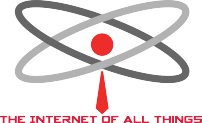Hannover and San Francisco, April 27, 2017: The Linux Foundation today announced the launch of EdgeX Foundry, an open source project to build a common open framework for Internet of Things (IoT) edge computing and an ecosystem of interoperable components that unifies the marketplace and accelerates enterprise and Industrial IoT. The initiative is aligned around a common goal: the simplification and standardization of Industrial IoT edge computing, while still allowing the ecosystem to add significant value.
“Success in Internet of Things is dependent on having a healthy ecosystem that can deliver interoperability and drive digital transformation,” said Jim Zemlin, Executive Director of The Linux Foundation. “EdgeX Foundry is aligning market leaders around a common framework, which will drive IoT adoption and enable businesses to focus on developing innovative use cases that impact the bottom line.”
Unifying the IoT Market
EdgeX Foundry is unifying the marketplace around a common open framework and building an ecosystem of companies offering interoperable plug-and-play components. Designed to run on any hardware or operating system and with any combination of application environments, EdgeX can quickly and easily deliver interoperability between connected devices, applications, and services, across a wide range of use cases. Interoperability between community-developed software will be maintained through a certification program.
“One of the key factors holding back IoT designs in the enterprise is that there are too many choices to safely and easily implement a system that will provide a return on investment in a reasonable timeframe,” said Mike Krell, Lead IoT Analyst at Moor Insights & Strategy. “EdgeX Foundry will fundamentally change the market dynamic by allowing enterprise IoT applications to choose from a myriad of best-in-class software, hardware and services providers based on their specific needs.”
Founding members include: Advanced Micro Devices (AMD), Alleantia, Analog Devices, Bayshore Networks, Beechwoods Software, Canonical, ClearBlade, CloudPlugs, Cloud of Things, Cumulocity, Davra Networks, Dell, Device Authority, Eigen Innovations, EpiSensor, FogHorn Systems, ForgeRock, Great Bay Software, IMS Evolve, IOTech, IoTium, KMC Controls, Kodaro, Linaro, MachineShop, Mobiliya, Mocana, Modius, NetFoundry, Neustar, Opto 22, relayr, RevTwo, RFMicron, Sight Machine, SoloInsight, Striim, Switch Automation, Two Bulls, V5 Systems, Vantiq, VMware and ZingBox. Industry affiliate members include: Cloud Foundry Foundation, EnOcean Alliance, Mainflux, Object Management Group, Project Haystack and ULE Alliance.
“Businesses currently have to invest a lot of time and energy into developing their own edge computing solutions, before they can even deploy IoT solutions to address business challenges,” said Philip DesAutels, PhD Senior Director of IoT at The Linux Foundation. “EdgeX will foster an ecosystem of interoperable components from a variety of vendors, so that resources can be spent on driving business value instead of combining and integrating IoT components.”
Adopting an open source edge software platform benefits the entire IoT ecosystem:
- End customers can deploy IoT edge solutions quickly and easily with the flexibility to dynamically adapt to changing business needs;
- Hardware Manufacturers can scale faster with an interoperable partner ecosystem and more robust security and system management;
- Independent Software Vendors can benefit from interoperability with 3rd party applications and hardware without reinventing connectivity;
- Sensor/Device Makers can write an application-level device driver with a selected protocol once using the SDK and get pull from all solution providers;
- System Integrators can get to market faster with plug-and-play ingredients combined with their own proprietary inventions.
The Linux Foundation will establish a governance and membership structure for EdgeX Foundry to nurture a vibrant technical community. A Governing Board will guide business decisions, marketing and ensure alignment between the technical communities and members. The technical steering committee will provide leadership on the code and guide the technical direction of the project.

